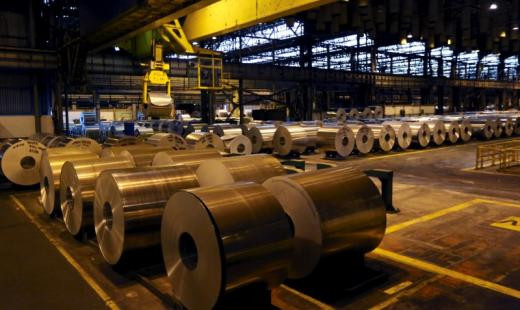China-US trade conflict seems to produce severe effects over the manufacturing markets. The manufacturers and goods producers of the greatest economies seem to put a halt to production activities amid the rising tensions of this trade battle.
Trade Conflict's Effect Over Manufacturing Industry:
Latest reports provided by Bloomberg suggested that factory activities in the U.S., Europe, and the Asia Pacific slowed down during the last month. The companies even threaten to disrupt the economies with repulsive effects from their end if the burden of tariffs arises rapidly disregarding their profit margins. High-level manufacturers such as carmakers like Daimler AG from Germany, Nissan Motors Co. from Japan and Hyundai Motors Co. from South Korea have already started outlining the losses they might see from higher tariffs.
Inclination Towards Alternative Options:
However, Asian manufacturers of electronics goods, who are the prime players in the global electronics market, have started shifting their interest to Southeast Asia, instead of China, for their requirement of raw materials, as China is struggling with the trade war. According to Channel NewsAsia, the Institute for Supply Management (ISM) stated that the overall index of national factory activity has fallen to 58.1 in July from the last month's (i.e: June 2018) reading of 60.2.
Chances of Recession:
The ISM also warned for a short global recession over the next few months in the majority of the manufacturing industries as it predicted: "employment resources and supply chains continue to struggle." It even added the manufacturing giants are "overwhelmingly concerned about how tariff-related activity, including reciprocal tariffs, will continue to affect their business."
Future Consequences of US-China Trade War:
Chief business economist Chris Williamson predicted, "The slowdown likely reflects worries about trade wars, tariffs, and rising prices, as well as general uncertainty about the economic outlook." He even stated the situation may worsen soon and manufacturers may have to cut down on much of their productions in the coming months as well.
In the midst of such worrisome timeline, China-US trade conflict saw a new episode as the Chinese government recently warned the U.S. against "blackmailing and pressuring" as Trump administration continues to put effort to force the Chinese officials for further negotiations by threating to impose greater taxes on imports.
The question still remains unanswered for the major industrial giants of the globe on how to tackle this trade battle between the two most progressive economies.






